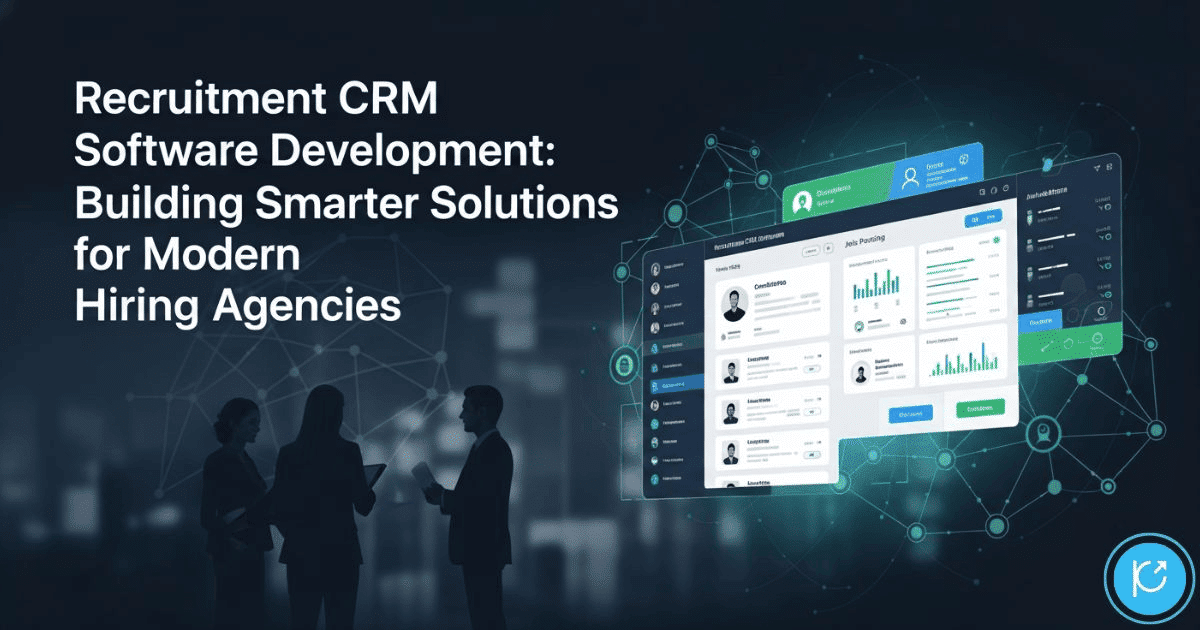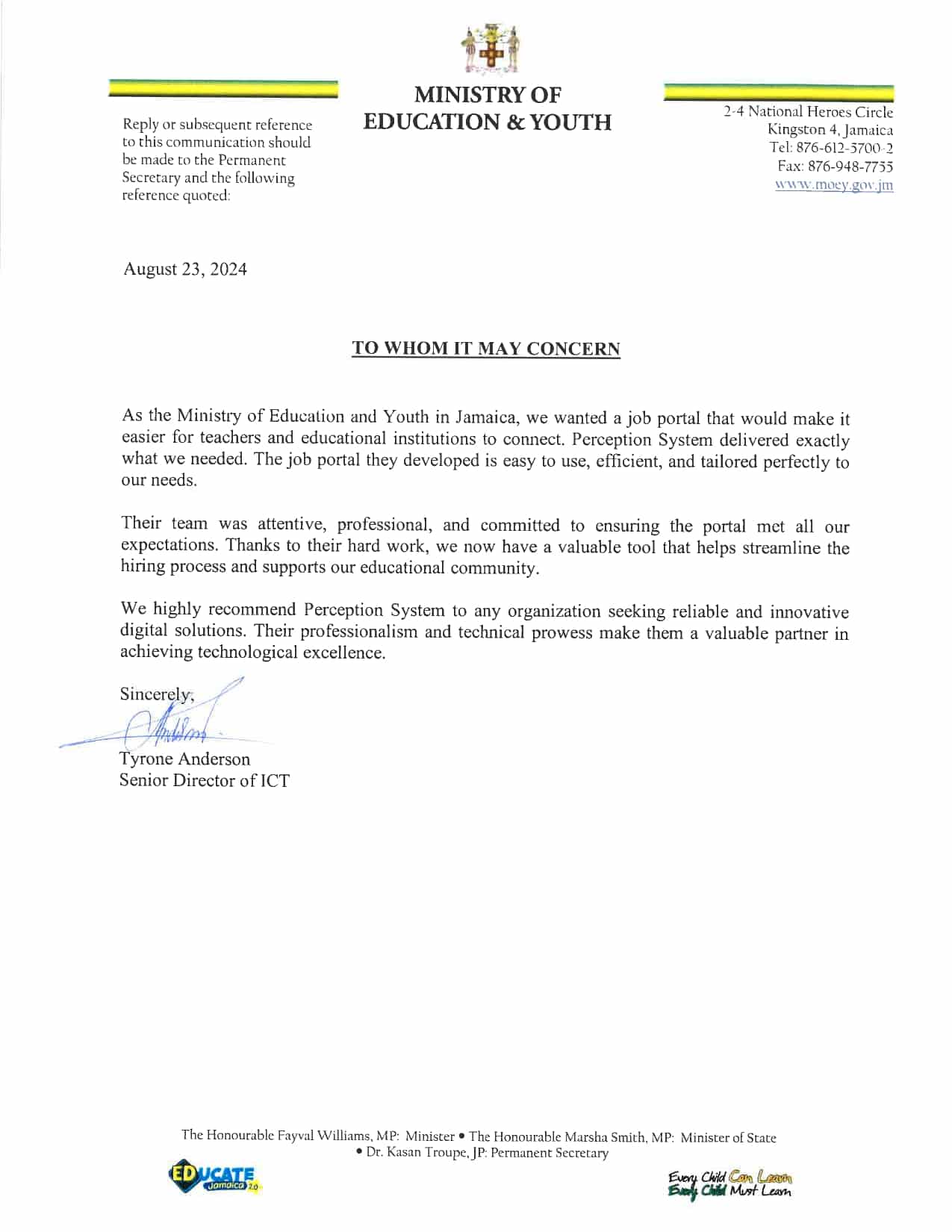Table of contents:
What Is Recruitment CRM Software? Why Agencies Need Custom Recruitment CRM Development
Tailored
Workflows
Advanced Candidate Management
Client
Relationship Tracking
Analytics and
Reporting
Multi-Channel
Integration
In today’s competitive recruitment landscape, agencies face immense pressure to hire faster, maintain strong client relationships, and streamline candidate management. Traditional spreadsheets or standalone ATS tools often fall short of these demands. That’s where Recruitment CRM Software Development comes in—offering agencies a centralized, intelligent system to manage candidates, clients, and processes with precision.
This article explores how custom Recruitment CRM solutions transform hiring efficiency, the key features to look for, and insights from real-world development experiences.
What Is Recruitment CRM Software?
A Recruitment CRM System is more than just a database of candidates. Unlike Applicant Tracking Systems (ATS), which focus primarily on job application workflows, a CRM emphasizes relationship management. It helps agencies track interactions with clients, nurture candidate relationships, and automate repetitive tasks.
Modern recruitment CRMs are often cloud-based, allowing teams to access candidate and client information from anywhere. With custom recruitment CRM development, agencies can tailor workflows, dashboards, and integrations to their specific needs—whether it’s handling high-volume hiring or niche talent acquisition.
Key benefits include:
- Data-driven decision-making
- Centralized candidate and client data
- Enhanced communication tracking
- Data-driven decision-making
Perception System specialises in building Recruitment CRM Software Dev. solutions that align with agency workflows while improving operational efficiency.
Why Agencies Need Custom Recruitment CRM Development
Out-of-the-box CRMs rarely cater to the unique needs of recruitment agencies. Custom solutions allow for scalability, flexibility, and integration with other tools. Here’s why custom development is crucial:
1. Tailored Workflows:
Every agency has unique processes for sourcing, interviewing, and client management. Custom CRMs can mirror these workflows, reducing manual work.
2. Advanced Candidate Management:
Automated candidate segmentation, tagging, and follow-up sequences improve engagement and reduce drop-offs.
3. Client Relationship Tracking:
Agencies can manage multiple clients, track interactions, and automate reminders to ensure no opportunity is missed.
4. Analytics and Reporting:
Custom dashboards provide real-time insights into pipeline status, recruiter performance, and hiring trends.
5. Multi-Channel Integration:
Seamless integration with emails, job boards, LinkedIn, and messaging apps enhances outreach and communication.
Agencies investing in Recruitment CRM Solutions not only increase efficiency but also improve client satisfaction by providing a more professional, transparent hiring process.
Core Features of an Effective Recruitment CRM
An efficient Recruitment CRM should combine candidate, client, and recruiter tools in one platform. Some critical features include:
- Candidate Management:Store profiles, resumes, and interaction history. Use AI-driven search to match candidates to open positions.
- Client Relationship Tracking: Track communications, contracts, and feedback in one place.
- Communication Automation: Automated emails, SMS, and follow-up sequences reduce manual effort.
- Analytics Dashboards: Visualize pipelines, KPIs, and recruiter performance metrics.
- Integration with Job Boards and ATS: Combine sourcing and applicant tracking for seamless workflows.
- Pipeline Automation: Automatically move candidates through different hiring stages based on rules or recruiter actions.
- AI-Powered Recommendations: Suggest best-fit candidates for specific roles.
By implementing these features, agencies can enhance both recruiter productivity and candidate experience. For advanced solutions in this area, explore Recruitment Software Development services that tailor these functionalities to your agency’s workflows.
Tech Stack & Development Process
Developing a custom Recruitment CRM requires careful consideration of the tech stack, security, and scalability. Common technologies include:
- Front-end: React.js, Angular
- Back-end: Node.js, Laravel, Django
- Database: PostgreSQL, MongoDB, MySQL
- Cloud Services: AWS, Google Cloud, Azure
- APIs: Integration with email, messaging, job boards, and ATS
A CRM Development Company like Perception System ensures that your platform is secure, scalable, and tailored to your agency’s workflows. Key development steps include:
- Requirement Analysis: Understanding agency processes and challenges
- UI/UX Design: Creating intuitive dashboards for recruiters and clients
- Backend Development: Building database structures, APIs, and automation workflows
- Integration: Connecting third-party tools, ATS, and communication channels
- Testing & QA: Ensuring performance, security, and reliability
- Deployment & Support: Launching cloud-based platforms with ongoing maintenance
For agencies seeking comprehensive solutions, Perception System also offers Web Portal Development Services that complement custom CRM development, ensuring seamless integration and workflow management.
Real Case Study Insight
To see how development principles translate into real-world results, consider our Simple Job Portal Website Development Case Study. This project demonstrates:
- Optimized workflows for candidate and client management
- Custom dashboard development for analytics and reporting
- Integration of multi-channel communication tools
- Seamless scalability for future growth
Similar approaches are applied in Recruitment CRM Development, ensuring that agencies can manage both client and candidate relationships efficiently while reducing administrative overhead.
Cost of Developing a Recruitment CRM System
The cost of developing a custom Recruitment CRM Software depends on several factors:
- Feature set (basic vs advanced automation)
- Technology stack (open-source vs proprietary)
- Integrations with existing tools and ATS
- Design complexity and user experience
- Ongoing maintenance and support
Typically, development can range from $15,000 to $50,000 or more depending on requirements. Investing in a tailored solution often provides a higher ROI than adapting generic software to agency workflows.
How Recruitment CRM Software Improves Hiring Efficiency
Implementing a Recruitment CRM System can dramatically enhance hiring efficiency in several ways:
- Time-to-Hire Reduction: Automation of repetitive tasks and candidate tracking speeds up the recruitment cycle.
- Better Collaboration: Recruiters, managers, and clients can share insights and updates in real-time.
- Enhanced Candidate Experience: Timely follow-ups, personalized communication, and faster feedback improve candidate satisfaction.
- Data-Driven Decisions: Analytics dashboards help identify bottlenecks, track recruiter performance, and forecast hiring trends.
- Scalability: Agencies can easily expand to manage multiple clients and high-volume recruitment campaigns.
By improving operational efficiency and providing actionable insights, a Recruitment CRM Platform becomes a strategic asset rather than just a management tool.
Boost Hiring Efficiency with Custom Recruitment CRM
The recruitment industry is evolving, and agencies need intelligent, customized tools to stay competitive. Recruitment CRM Software Development offers agencies a robust system to manage candidates, clients, and operations efficiently. From advanced analytics to seamless integrations and workflow automation, a well-designed CRM can transform hiring processes, reduce time-to-hire, and enhance client satisfaction.
Agencies looking to modernise their recruitment operations can consult experts in custom Recruitment CRM Development to implement a system tailored to their unique needs. Reach out to us here to get started.




